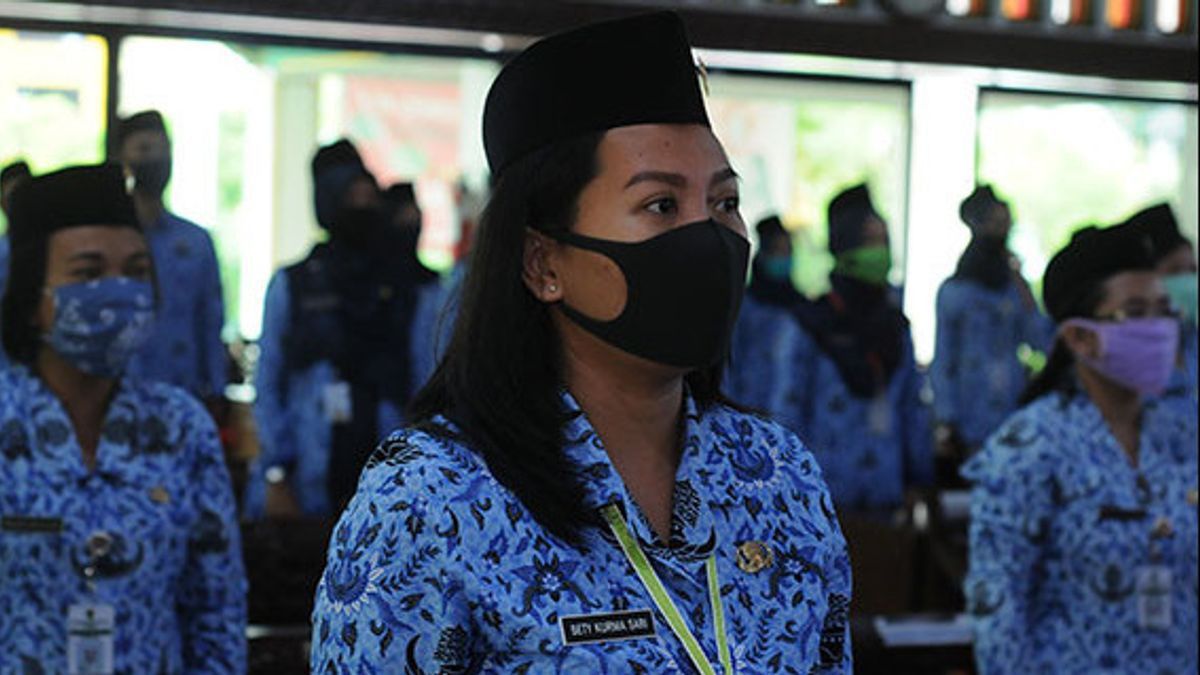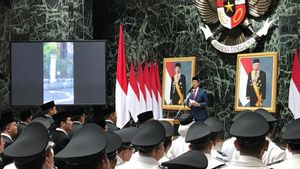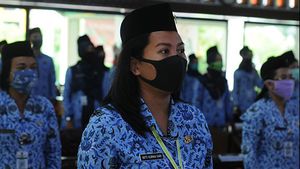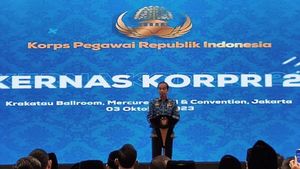JAKARTA - The House of Representatives has passed the State Civil Apparatus Law (UU ASN). The ratification of the ASN Law is for the sake of equitable quality ASN in the regions, especially in the 3T region (left behind, frontier and outermost).
"This law is a transformation within ASN as a civil servant, as well as to improve the national talent gap. We all know that the distribution of quality ASN is still not evenly distributed, because currently it is still centered in big cities," said DPR Speaker Puan Maharani, Wednesday, October 4.
The DPR has officially ratified the Draft Law (RUU) concerning Substitutions for Law Number 5 of 2014 concerning State Civil Apparatus (ASN) into Law through the 7th DPR RI Plenary Meeting for Session Period I of Session Year 2023-2024 on Tuesday (3/10) yesterday.
One of the crucial issues in this law is the availability of a legal umbrella for the arrangement of non-ASN or honorary staff, which amounts to more than 2.3 million people and the majority are in regional agencies. In addition, this law is ratified as a solution so that the 3T area also gets good service.
With the new ASN Law, Puan hopes that the Ministry of Administrative Reform and Bureaucratic Reform (Kemen PANRB) can implement the achievements of special ASN formation in the 3T area.
"To provide maximum service to all regions of Indonesia, high-quality ASN are needed who are willing to be placed in 3T areas," explained the former Coordinating Minister for Human Development and Culture.
Based on the Government's statement, there are more than 130,000 ASN formations that are not fulfilled in the 3T area. This is due to the lack of interest in ASN candidates to fill formations in these areas.
To fulfill the transformation of the quality of ASN services, the ASN Law provides a solution by regulating incentives for ASN who are willing to be placed in the 3T area. This transformation is needed for the target direction of national development.
SEE ALSO:
"With special incentives and acceleration in promotions compared to ASN in the capital area, this will attract ASN interest to be willing to be placed in the 3T area," explained Puan.
Through the ASN Law, the Government can also make proposals for ASN to be placed outside the capital city. Puan hopes that this regulation can facilitate so that there will be no more vacancies in ASN formations in several areas outside Indonesia.
"ASNs stationed in 3T areas will be able to accelerate regional development. This is because these ASNs will be able to assist local governments in implementing various development programs," he said.
The DPR's support through the ratification of the ASN Law is also intended for honorary staff, which was originally to be abolished. Puan said that the ASN Law ensures that there is protection for honorary workers from mass layoffs.
"For honorary staff, I hope that this law will become a breath of fresh air from their anxiety because there was a discourse on dismissal this November. The ASN Law will guarantee all honorary staff not to be laid off," said Bung Karno's grandson.
"There are millions of non-ASN workers who have been working seriously to serve the people. This ASN Law is the beginning of our commitment in the DPR to continue to support honorary staff so that they can continue to work for the country," continued Puan.
BKN data states that the number of honorary workers in Indonesia in 2023 will reach 2.3 million people. Of these, 1.8 million people work in central government agencies and 500 thousand people work in local government agencies.
In discussions with the Government, the DPR always encourages no mass layoffs that can be detrimental to honorary workers. Puan stated that the DPR always emphasized that the Government should change the status of honorary staff to ASN or Government Employees with Work Agreements (PPPK).
"The DPR and the Government agree that in this ASN Law there should be no neglect for honorary staff. Moreover, those who have served for years are prioritized," he said.
Therefore, Puan hopes that the presence of the ASN Law will bring positive changes in improving the welfare of ASN personnel and supporting non-ASN personnel who play a major role in running the government wheels.
With the commitment and cooperation of all parties, Indonesia can achieve a government that is more efficient, effective, and in favor of the people. This historic step brings great hope to non-civil servants in Indonesia," hoped Puan.
The English, Chinese, Japanese, Arabic, and French versions are automatically generated by the AI. So there may still be inaccuracies in translating, please always see Indonesian as our main language. (system supported by DigitalSiber.id)

















